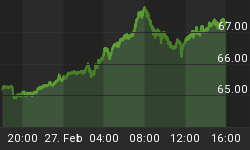The first of the Euro-zone's big economies reported preliminary Q2 GDP data today -- and the picture was not a pretty one. Italy's GDP contracted 0.3% q-o-q in Q2, and posted zero growth on the year.

That Italy's economy is stalling out is no surprise - already one of the weaker economies in the 15-nation Euro-zone, data in recent weeks have pointed to a marked deceleration in the 'zone's third-largest economy. Consumer morale has plunged to near-15-year lows and business sentiment is the weakest it's been in seven years. The Markit manufacturing PMI for Italy dropped further below the growth-contraction divide of 50.0 in July. The index reading of 45.3 was down from 46.9 in June, the fifth straight monthly decline and its weakest showing in nearly seven years.
Yesterday, the European Central Bank (ECB) left interest rates on hold at 4.25% and stated that risks to economic growth are starting to materialize. Euro-zone GDP almost certainly contracted in Q2 - Eurostat will release its flash estimate on August 14, the same day that Germany and France release their own first estimates. If the numbers surprise on the downside, the markets will start anticipating a rate cut from the ECB on September 4. However, bank policymakers continue to warn about inflation risks, and an easing is highly unlikely so soon after the last rate hike (on July 3). Euro-zone interest rates are probably on hold for the rest of this year - unless the 'zone-wide slowdown starts to look like a collapse.















